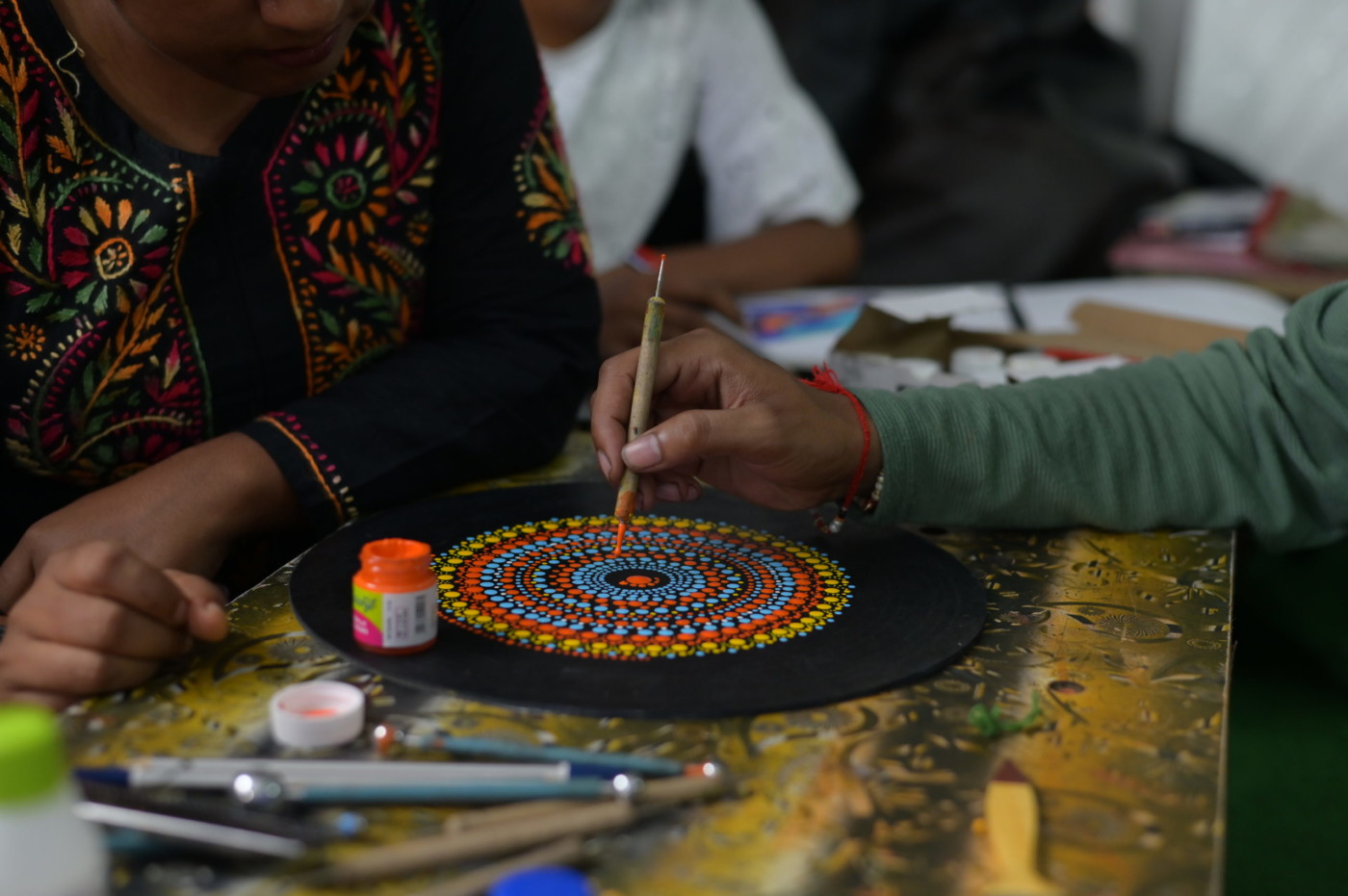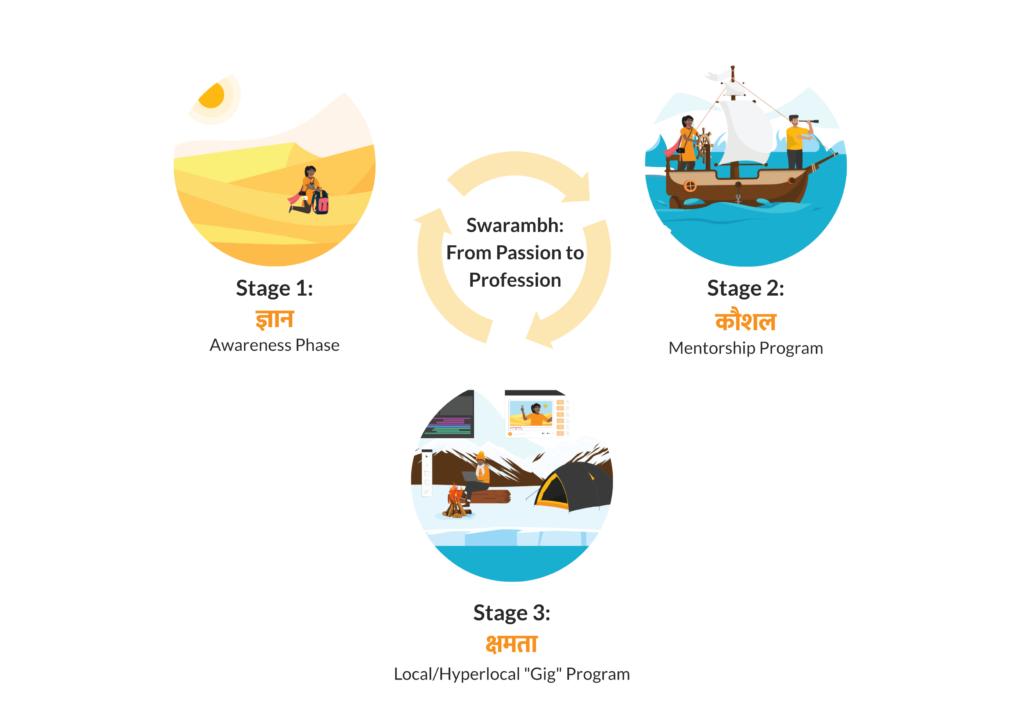
Unleashing Potential: Freelancing for the Modern Workforce
In today’s dynamic and competitive work environment, freelancing has emerged as a powerful avenue for individuals to unleash their full potential. Gone are the days of traditional 9-to-5 jobs; the modern workforce embraces a more flexible and aspiration-driven approach to work.
This blog explores the concept of unleashing potential through freelancing, delving into how individuals can leverage their skills, passions, and aspirations to craft a fulfilling and successful freelance career. Read ahead as we dive into the world of freelancing and discover the keys to the modern work landscape.
Redefining Conventional Career Paths
The modern workforce is redefining the traditional concept of work and success in the workplace and exploring alternative careers by prioritizing purposefulness, passion, work-life integration, flexibility, and autonomy.

1The world’s increasing exposure to freelancing and unconventional paths is multifaceted, driven by factors like improved tech infrastructure & digital connectivity. This framework enables individuals to access online platforms, connect with clients remotely, and facilitate outreach to a global talent pool for employers. Reports also suggest that the gig economy could provide up to 90 million jobs and contribute around 1.25 percent to India’s GDP, highlighting its growing significance.3 Gig economy is the primary source of income for 53% of gig workers between the ages of 18 and 34.
As the statistical data shows, new career paths and continuous learning are gaining importance, and diversity, inclusion, personal fulfillment, and employee welfare are vital considerations.
Freelancing Trends in Tier 2 and 3 Cities
Freelancing is a new kind of workplace. It requires an innovative approach, transferable skill sets, a credible portfolio, awareness of online freelancing platforms, networking skills, social media, industry trends, and company websites. Top cities surpass tier 2 and 3 cities’ development and resources due to advanced infrastructure, renowned educational institutions, and more job opportunities. Contrarily, in the freelancing domain, Tier 2 and 3 cities offer unique advantages of comprehensive resources like tailoring, printing, Mehendi, Social Work, Teaching, Tie-dye, Agriculture, and Hardware, which have grown more popular, especially among women.

There is an inevitable need for support systems in Tier 2 and 3 cities to boost freelancing marketplaces. Establishing communities or forums, creating innovative platforms, and developing educational resources are essential. Advocacy, awareness initiatives, and collaborative efforts with stakeholders, including freelancers, businesses, and government advocacy, will contribute substantially to an adaptable support ecosystem.
Swarambh: From Passion to Profession
In the context of the emerging exposure to the gig economy and freelancing as a viable career, Swarambh has been an essential and noteworthy catalyst program, especially in the UP region. It has played an instrumental role in facilitating resources, training, and skill enhancement for students and connecting hyperlocal businesses and employers with students aspiring to join the freelancing workforce. The Swarambh program is a Medha initiative that has created a gig ecosystem for Tier 2 and 3 city students and their changing needs.

It seeks to bridge gaps by identifying the limited technical skills in these cities and helping students enhance and leverage their skills specific to local industry trends. The program began in 2020 with just 25 young girls and has enabled the youth to equip themselves with tangible skills and expertise for the regional and global markets. During the initial intervention phase, this model and Swarambh’s Annual Report reflect the program’s journey in Medha. Presently, it has 1073 students, with 563 enrolled in 2023 in Varanasi, Prayagraj, Ghaziabad, and Patna.
The program follows a well-structured implementation process, pitching it to government and semi-government colleges, polytechnics, and ITIs. It consists of three stages: Gyan, Kaushal, and Kshamta.

The Gyan stage is an awareness phase through 20-hour boot camps, which helps to recognize the student’s potential and skills. Stage 2 is Kaushal, where the participants connect with mentors and can build transferable skillsets for better projects. In the last stage, Kshamta, we expose participants to working with hyperlocal businesses and provide them with field experience. Other mobilization drives and workshops are conducted on campus to create awareness about financial independence among the students. The response from female students has been especially remarkable, with many expressing interest in pursuing unconventional careers like YouTubing, photography, and web designing.
Sub-Platforms, Events, and Area-Specific Strategies
The program provides unique platforms for freelancers and local employers through events like the Swarambh walk, where 120 emerging freelancers spread freelancing awareness locally and surveyed 105 local employers.

Other events like Freelancer’s Jamming brought mentors from across states to an in-person awareness program for freelancing aspirants. Per the feedback shared with Medha, this initiative was a huge success and helped empower freelancers and connect with local employers.
The Stories of Unconventional Excellence
In Eastern UP, stereotypes, sexism, biased societal expectations, a lack of mentors and female leaders, a one-income-earner household model, and poor nutrition are the significant gender barriers. In the area where Swarambh works, it overcomes these barriers and navigates economic independence and fulfillment. Madhu’s and Khushnuma’s inspiring stories below testify to how Swarambh has empowered many female voices and independence.
Madhu’s Story: Power of Determination, Passion, and Support!
Madhu’s inspiring journey in the fashion world arose in Banaras, where she ignited her passion through early exposure to tailoring from her father and a supportive neighbor. While pursuing a Bachelor of Arts, Madhu honed her skills through dedicated practice and joining an institute to study fashion design. Crucial to her success was the unwavering support of her family, particularly her father, who supported her during challenges and triumphs. Balancing her studies and burgeoning career, Madhu became an independent fashion designer, gaining client popularity. She is now earning a sustainable monthly income. She also is a successful mentor and teacher, sharing her expertise with eager students.

The Swarambh program was pivotal in Madhu’s journey, helping her discover her ikigai and providing crucial support. Her story is a testament to the transformative power of resilience, family support, and strategic programs in achieving personal and community success. It inspires others to be passionate and positively impact their field.
Khushnuma’s Mehndi Magic: A Journey of Passion and Empowerment!
Khushnuma, a lively B.A. student from Banaras, is on the brink of a remarkable milestone: becoming the first graduate in her family. However, her true joy lies in the world of Mehndi designing. Her journey from tracing patterns as a child to evolving into a skilled Mehndi artist is a testimony to the miraculous power of dedication.
Khushnuma’s skill in Mehndi design is highly sought after in her local area. She is invited to every celebration and function to adorn people’s hands with her intricate designs. She also balances her studies with freelance Mehndi work, exemplifying the transformative impact of passion and determination. Her story reminds us that with unwavering dedication, dreams can indeed become reality.

The Swarambh program, coupled with her family’s steadfast support, has been instrumental in changing Khushnuma’s life, paving the way to independence. In a world with limited opportunities, Khushnuma is an inspiring example of empowerment for young girls.
In addition to Mehndi designing, Khushnuma finds joy in writing, painting, and stitching, showcasing her versatility and creative prowess. Her story resonates deeply with those who embrace their creative potential and dare to tread unconventional paths, inspiring them to reach for the stars.
The Way Forward
Freelancing careers reduce unemployment and foster economic growth significantly. We must advocate for better support systems by investing in digital literacy and skill development. There is a need for fair rules for benefits, legal protection, and skills training, along with affordable workspaces and efficient online platforms. Government involvement in awareness programs about finances, taxes, and income management for freelancers is critical. Lastly, learning more about freelancers through research helps us make better decisions to support them. If we initiate action in these areas, we can better the lives of freelancers and support them in success.
Freelancing offers immense potential to the youth and has become the new “trending” career option for most youth. It has enabled Indians to explore global opportunities and marketplaces and contributed to India’s expected position as a leading gig economy worth $335 billion by 2025.

Thus, the role of the Swarambh program has been exemplary in creating functional spaces, building skills, and exposing students to help them embark on a journey of self-independence and financial stability, along with purposefulness and fulfillment in their work. Its association with governmental organizations, local businesses, educational institutions, and experts in their field is beneficial for the all-round development of student’s freelancing ambition. Swarambh has tremendous potential to branch out to other states of India and function as a more concrete support system.